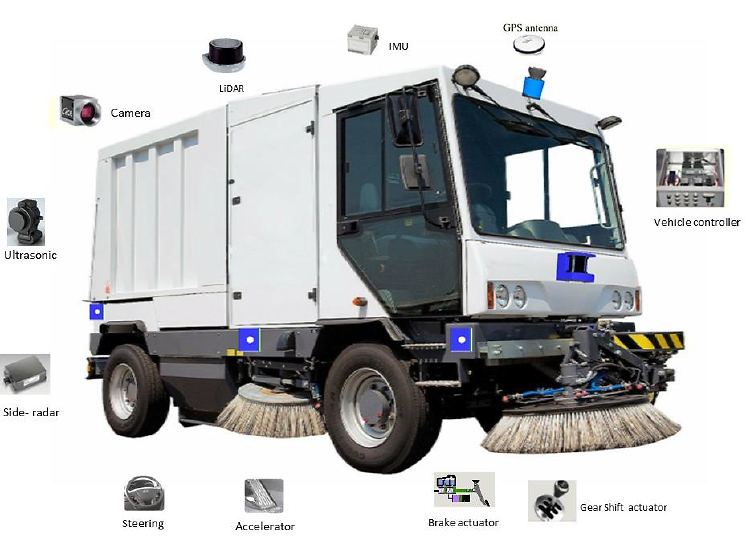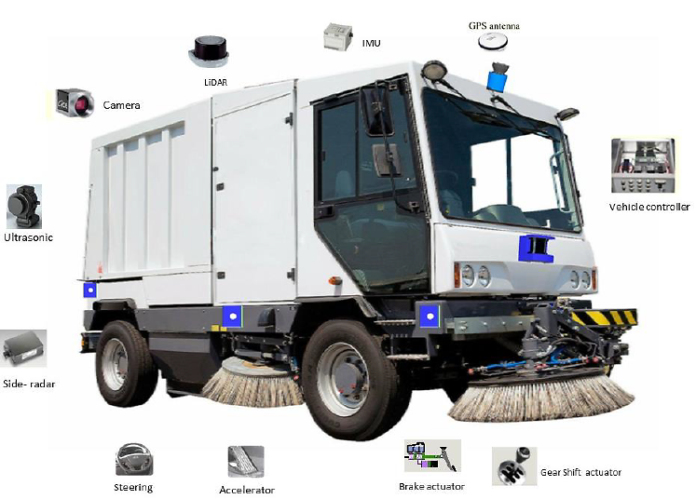SINGAPORE: Self-driving vehicles to clean roads in Singapore will go on trial in 2020, said the National Environment Agency (NEA) and the Ministry of Transport (MOT) in a joint media release on Thursday (Mar 21).
Two consortiums have been selected to design, develop and test the vehicles, following a Request for Proposals that was issued in December 2017.
Trials will be conducted in two stages – first, each consortium will test the vehicles’ safety features within a circuit at the CETRAN AV Test Centre.
They will only be allowed to start trials on public roads at designated AV (autonomous vehicle) test sites such as one-north, after passing a rigorous safety assessment, said NEA and MOT.
“The AESVs (Autonomous Environmental Service Vehicles) are required to have on board at all times for the duration of the trials, a safety driver who is trained to take immediate control of the vehicle, in accordance to strict operational protocols,” the authorities added.

An illustration of a proposed Autonomous Environment Services Vehicles concept. (Graphic: Dulevo International)
The consortiums selected consist of “experienced and established” players from the autonomous vehicles and environmental services industries, said NEA and MOT.
The first consortium comprises Nanyang Technological University, Enway, Veolia ES Singapore Industrial and Wong Fong Engineering Works.
The second consortium is made up of ST Engineering Land Systems and 800 Super Waste Management.
“The successful completion of these trials will pave the way for the pilot deployment of AESVs for road cleaning,” said NEA and MOT, adding that details of the pilot deployment will be announced after 2020.
“Building on existing technologies used on our mechanical sweeper vehicles to monitor the progress and status of road cleaning, these projects seek to further automate road cleaning, by catalysing the local robotics industry to build up expertise and experience in delivering environmental robotic solutions, which can then be commercialised and potentially exported,” said NEA CEO Tan Meng Dui.
Such vehicles also have the potential to improve productivity, said Permanent Secretary for Transport Loh Ngai Seng.
“The deployment of AESVs will enable us to optimise the use of our road network, while improving the productivity of road cleaning operations,” he said.
“With reduced reliance on manpower, we can potentially shift road cleaning activities to the night and reduce congestion during the day.”





